Gut Healing Guide
People used to roll their eyes at me when I told them I was “healing leaky gut”. Like it was just this woo-woo thing that I made up. And let’s face it, it does sound kind of ridiculous. I could see people picturing swiss cheese size holes in someones stomach causing entire cherrios to just leak out into their veins. And really, that’s kind of how it’s described.
Gut healing is way over simplified in my opinion, and not taken anywhere near as seriously as it should be. Many people have serious gut issues and would benefit from adopting a gut healing protocol, especially those with autoimmune disease. So, what is gut healing, why do you need it, and how do you do it?
First, what is “leaky gut”?
“Leaky gut” is essentially increased intestinal permeability. Just like our skin, or any other organ, our intestines are already permeable, but with a more damaged gut, the tight junctions in our gut lining become even more permeable as they become damaged. Undigested fats, proteins, carbs, and even unsafe pathogens and bacterias can pass through the wall of our small intestines
How does the gut become damaged?
Our intestines are no thicker than our eyelid (cited: The 7 Day Detox Miracle). Isn’t that crazy? They’re already permeable, and seeing as they’re so fragile, it’s not wonder that they’re so easily and so often damaged.
Contrary to popular belief, the small intestine may is not the root of the problem. Rather, the problem is often caused or made worse by disfunction upstream. Our food is supposed to be fully broken down by the time that it reaches our small intestine, but when we aren’t digesting properly in our stomach, this not only can cause leaky gut, but it makes it worse as our small intestines aren’t built to handle improperly digested food.
Here are some more ways that our guts can become damaged…
- Improper Digestion, which can be caused by:
- Reflux
- Eating in a stressed state
- Improper Chewing
- Fat malabsoprtion
- Over use of NSAID’s, antibiotics or birth control
- A poor quality diet
- Stress
- Parasites or bacterial overgrowth
What are the symptoms?
The symptoms are very individualized. They can subtle or severe depending on how long the damage has ensued. They include but aren’t limited to…
- Feeling “allergic to everything”
- Digestive issues (like IBS)
- Skin issues (like eczema and acne)
- Seasonal allergies
- Low energy and fatigue
- Joint pain
- Headaches
- Commonly getting sick
- Recent development of autoimmune disease
What is the gut, autoimmune connection?
As a damaged gut is characterized by undigested food passing into ones bloodstream, this causes an ongoing and very unnatural immune attack. The immune system becomes confused by the foreign substances being passed into the blood stream, and depending on ones own genetic predisposition, or other factors, autoimmunity can develop and present in different ways.
For example, gluten was my first big gut issue (to my knowledge), and I developed Hashimoto’s disease. Little did I know, gluten molecules that were leaking into my blood stream and causing my immune system to attack looked a lot like the molecules in my thyroid. My immune system got used to attacking the gluten and began attacking my thyroid as well. Thus, the autoimmune gut connection which can present in a myriad of different autoimmune diseases.
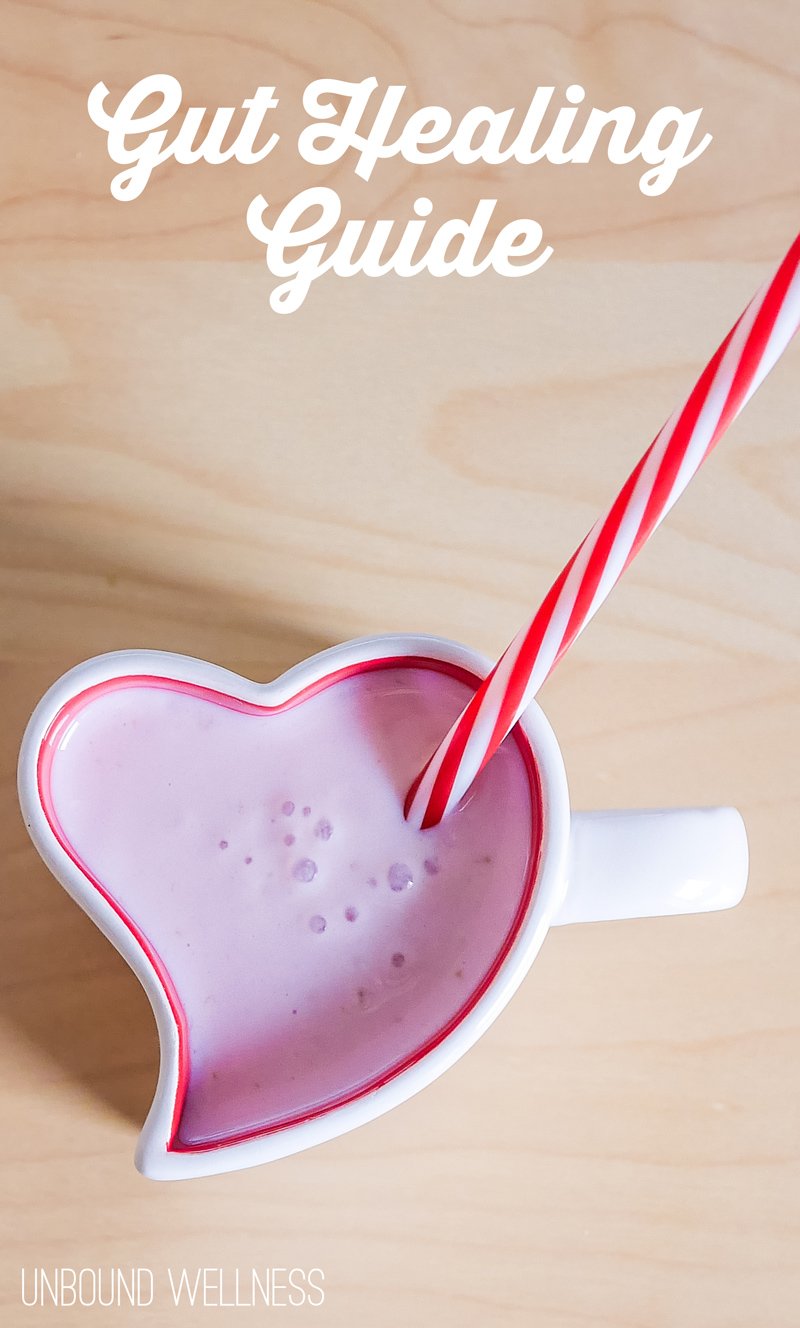
How do you heal your gut?
1. Follow a gut healing protocol, and customize for you own use.
There are tons of smart people who came before us that developed great gut healing protocols, and amazing doctors, nutritional therapists, and naturopaths that can help guide you to find the right gut healing protocol for you.
Here are some great protocol that I trust and recommend studying and talking to your doctor about:
- GAPS (Gut and Psychology Syndrome)
- Autoimmune Protocol
- SCD (Specific Carbohydrate Diet)
Though the protocols above are great, I recommend both working with a doctor, as well as customizing your approach. No one protocol will fit every persons needs. Don’t match your approach to fit someone else’s.
2. Remove food allergens and add healing foods.
Working with a doctor and adopting one of the protocols above will most likely ensure that you remove food allergens, and add in healing foods. However, it’s important to note specifically which foods work for you.
Generally, it’s recommended to remove inflammatory foods such as gluten, grains, dairy, sugars, and all processed foods. In more customized approaches, you may also remove seeds, nuts, starches, nightshades, and FODMAPS. Again, it’s all in your approach that you develop working with a professional
You also want to be sure to add healing foods that nourish your body rather than just focusing on removal. Healing foods include,
- Bone Broth
- Broth Based Soups
- Collagen (and collagen smoothies)
- Fermented foods and drinks
- Tons and tons of veggies
- Pasture raised meats
3. Heal your digestive dysfunction.
As stated above, digestive dysfunction is both a cause and aggravator for a damaged gut situation. Improperly digested food harms the gut lining, and digestive distress only adds more stress to an emergency situation in the body.
Healing your own digestive dysfunction is unique to your own dysfunction, but here are some good practices to discuss with your doctor/NTP, etc.
- Digestive bitters for proper HCL production
- Digestive enzymes for better digestion
- Ox bile enzymes for fat digestion
However, beyond the actual supplements, the number one thing that you can do is relax around your food and eat in a non-stressed state. Digestion need to take place in a relaxed state to be done properly. Stress will only worsen the situation.
4. Balance your blood sugar.
Blood sugar issues need to be considered by everyone, not just diabetics. In our carb-centric world, fat-phobic world, blood sugar disregulation is all too common, but very manageable when you take the right steps.
A blood sugar imbalance will not only lead to improper food choices, but will keep the body and digestive system in a stressed state which will impede healing for longer. Constant blood sugar highs and lows overwork organs like the liver, pancreas, and adrenals which are necessary for keeping your digestion, hormones and your bodies ability to heal in balance.
Balancing your blood sugar is best done by eliminating processed sugars and carbs from your diet. You really don’t need them to survive and you certainly don’t need them to heal your gut. Also balancing higher sugar natural foods like fruit with fats will help properly assimilate the sugar. Allow fat, protein, and vegetables to make up the majority of your meals. Fruit and starches have a place, but not as the highlight of every meal.
5. Rebuild beneficial gut bacteria.
There is so much more that we have to learn about the bacteria in our gut and how it effects our health. What we do know is that the micro biome in our gut in crucial to our immunity, gut integrity and long-term health.
The bacteria in our gut not only fight off pathogens, but they even produce vitamin that help keep us healthy. Long standing use of antibiotics and birth control, or a poor diet can deplete our gut bacteria.
Eating fermented foods daily like sauerkraut, kimchi, beet kvass, or whatever fermented masterpiece you can make yourself is a great, natural way to rebuild your gut flora.
I suggest talking to your doctor about a probiotic, or trying something like a soil based probiotic like prescipt-assit. It doesn’t work for everyone, but it’s a great option for many, including myself.
6. Change your relationship with food.
Though this may be the least tangible piece of the puzzle, it’s arguably the most important. How we see food, the state that we eat food in, and how stressed we are around food has a powerful impact on our bodies ability to heal and on our overall quality of life.
A gut healing protocol may just seem like another “diet” that holds you back from eating ice-cream, but I urge you to not look at it that way. See it as a nourishing diet that is healing and helping your body rather one that you hate, and you will not only change your quality of life during the protocol, but you will speed it up.
I’ve written before about overcoming stress on a healing diet on my own blog, and how to eat intuitively with food allergies on Maddy Moon‘s blog to help you start to grasp how to reduce stress around food.
Gut healing isn’t easy. I’ve failed more times than one. However, what it does for you body, mind, and life is amazing, and is one-hundred-perecent worth the effort.
Disclaimer: I am not a doctor and this post is not to be used as medical advice, diagnosis or treatment. As I stated, consult a doctor. Also, the links in this post are affiliate links meaning that your price stays the same, but I get a small compensation if you click and buy.
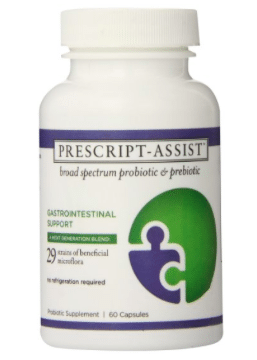

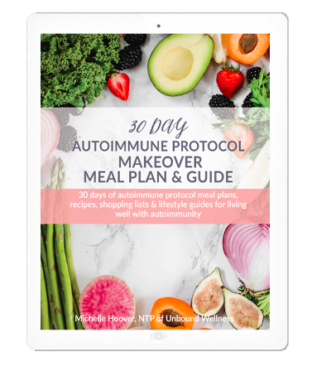

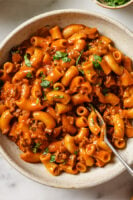
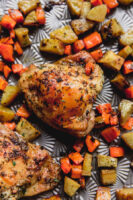
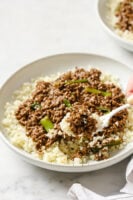

Pingback: Gut Healing Acai Bowl (Paleo, AIP, Dairy Free) - Unbound Wellness
Pingback: My Healing Story | Hashimoto's & Leaky Gut - Unbound Wellness
Pingback: What's The "Leaky Gut" Healing Time? - Unbound Wellness
Pingback: How to Make Perfect Gut Healing Bone Broth (Recipe) - Unbound Wellness